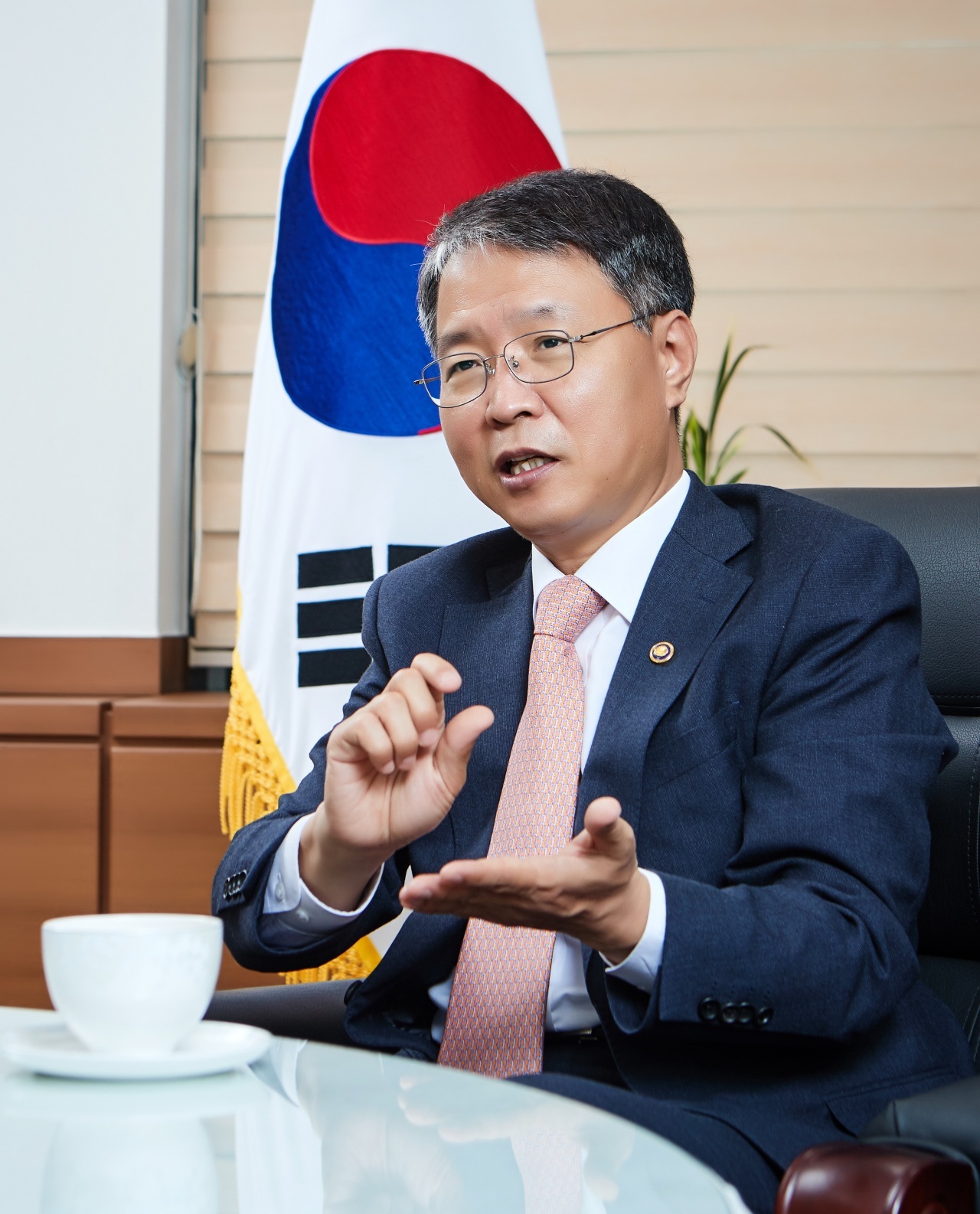KIPO outlines plan to prevent unfair competition, protect trade secrets
By Kim So-hyunPublished : Oct. 15, 2021 - 10:42

With the reorganization of global supply chains and accelerating digital transformation since the outbreak of the COVID-19 pandemic, securing cutting-edge technologies in fields such as artificial intelligence and semiconductors is becoming ever more crucial.
In addition to investing heavily in technological development, countries around the world are strengthening protection of trade secrets and control of technological exports to prevent leaking their core technologies to rivals.
The South Korean government and businesses are investing some 100 trillion won ($84.4 billion) in research and development annually, but if they can’t stop infringement of intellectual property rights such as technological leaks and unfair competition, it will get in the way of innovation and growth.
The Korean Intellectual Property Office has thus organized a group of about 30 people from industries, academia and the legal sector to set up basic policy plans to prevent unfair competition and protect trade secrets.
“The basic plan for prevention of unfair competition and protection of trade secrets is a work that lays the cornerstone to enhance the level of Korea’s intellectual property protection,” KIPO commissioner Kim Yong-rae said.
“We will come up with an effective plan through policy proposals from experts of various fields and in-depth discussions.”
Since April, his agency has been exploring policy tasks in three subcommittees on technological protection; prevention of unfair competition; and digital and international cooperation.
Major topics of discussions include easing the conditions for punishing industrial spies among other measures to avoid technological leaks; reinforcing “tech police” investigations; and improving civil and criminal procedures.
Surveys on unfair competition showed that consumers suffered damages in many cases, but the current law on prevention of unfair competition offers no means of relief for consumers. The group of experts is therefore reviewing ways to protect consumers as well.
The KIPO plans to draw up a draft of the basic policy plan by the end of October; finalize it within this year after receiving feedback from relevant ministries; and start implementing next year.
The commissioner said that he will push for unifying the examination standards for cutting-edge technologies at the Intellectual Property Five (IP5), a forum of the five largest intellectual property offices including those of the US, Europe, China and Japan.
By Kim So-hyun & Lee Kwon-hyoung
(sophie@heraldcorp.com) (Kwonhl@heraldcorp.com)
In addition to investing heavily in technological development, countries around the world are strengthening protection of trade secrets and control of technological exports to prevent leaking their core technologies to rivals.
The South Korean government and businesses are investing some 100 trillion won ($84.4 billion) in research and development annually, but if they can’t stop infringement of intellectual property rights such as technological leaks and unfair competition, it will get in the way of innovation and growth.
The Korean Intellectual Property Office has thus organized a group of about 30 people from industries, academia and the legal sector to set up basic policy plans to prevent unfair competition and protect trade secrets.
“The basic plan for prevention of unfair competition and protection of trade secrets is a work that lays the cornerstone to enhance the level of Korea’s intellectual property protection,” KIPO commissioner Kim Yong-rae said.
“We will come up with an effective plan through policy proposals from experts of various fields and in-depth discussions.”
Since April, his agency has been exploring policy tasks in three subcommittees on technological protection; prevention of unfair competition; and digital and international cooperation.
Major topics of discussions include easing the conditions for punishing industrial spies among other measures to avoid technological leaks; reinforcing “tech police” investigations; and improving civil and criminal procedures.
Surveys on unfair competition showed that consumers suffered damages in many cases, but the current law on prevention of unfair competition offers no means of relief for consumers. The group of experts is therefore reviewing ways to protect consumers as well.
The KIPO plans to draw up a draft of the basic policy plan by the end of October; finalize it within this year after receiving feedback from relevant ministries; and start implementing next year.
The commissioner said that he will push for unifying the examination standards for cutting-edge technologies at the Intellectual Property Five (IP5), a forum of the five largest intellectual property offices including those of the US, Europe, China and Japan.
By Kim So-hyun & Lee Kwon-hyoung
(sophie@heraldcorp.com) (Kwonhl@heraldcorp.com)







![[KH Explains] How should Korea adjust its trade defenses against Chinese EVs?](http://res.heraldm.com/phpwas/restmb_idxmake.php?idx=644&simg=/content/image/2024/04/15/20240415050562_0.jpg&u=20240415144419)











![[Today’s K-pop] Stray Kids to return soon: report](http://res.heraldm.com/phpwas/restmb_idxmake.php?idx=642&simg=/content/image/2024/04/16/20240416050713_0.jpg&u=)